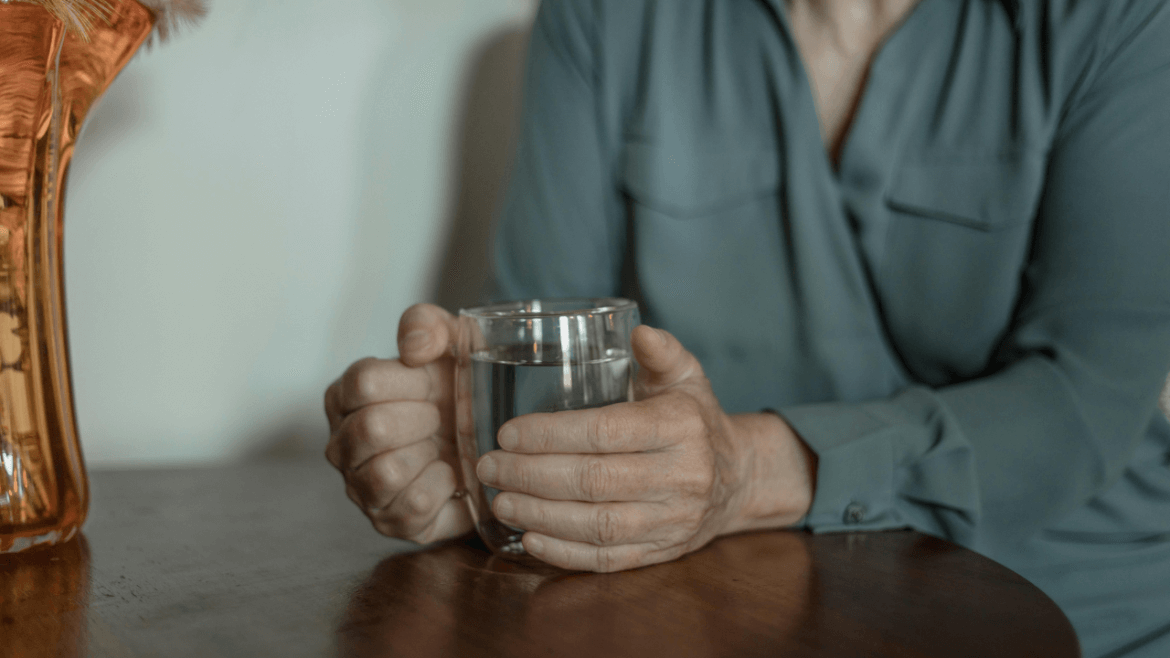Did you know that Leading Edge Senior Care has a Dementia Support Group? We meet monthly in Mesa. For more details <click here>
How Much Water Should A Senior Be Drinking?
Hydration plays a crucial role in maintaining overall health, especially as we age. Seniors often face challenges that make staying adequately hydrated more difficult, yet it remains vital for their physical and mental well-being.
Understanding how much water seniors should drink daily is the first step toward ensuring they stay healthy and avoid complications caused by dehydration.
The Importance of Proper Hydration
Water is essential for every function in the human body. It helps regulate temperature, transport nutrients, and flush out toxins. For seniors, these functions are even more critical. Aging bodies tend to lose water more quickly, and the sensation of thirst diminishes, making it easier to become dehydrated.
Dehydration can lead to a cascade of health problems, including urinary tract infections, confusion, constipation, and kidney issues. Chronic dehydration can also increase the risk of falls, a significant concern for the elderly. Ensuring seniors drink enough water daily isn’t just about avoiding discomfort—it’s about protecting their long-term health.
Recommended Water Intake for Seniors
While individual hydration needs vary, most health experts recommend that seniors consume at least 64 ounces (eight 8-ounce glasses) of water daily. However, this general guideline can change depending on a person’s size, activity level, and overall health.
For seniors with chronic conditions such as diabetes or heart disease, water needs may be slightly higher to counteract the effects of medications or the disease itself. On the other hand, those with kidney conditions may need to monitor their fluid intake closely under a healthcare provider’s guidance.
Recognizing the Signs of Dehydration
Sometimes, seniors may not realize they are dehydrated until symptoms become severe. Early signs include dry mouth, fatigue, and dark-colored urine. More serious symptoms can include dizziness, confusion, and even fainting. Caregivers and family members must stay alert for these signs, especially during hot weather or after physical activity.
It’s also worth noting that some seniors may resist drinking water due to fear of frequent bathroom trips. Addressing these concerns and finding manageable solutions is key to keeping hydration levels on track.
Overcoming Barriers to Hydration
Encouraging seniors to drink enough water requires creativity and understanding. Here are a few strategies that can make a difference:
- Offer Small, Frequent Sips
Large glasses of water can feel overwhelming. Encourage sipping water throughout the day instead. - Infuse Flavor
Adding slices of lemon, cucumber, or berries can make water more appealing without adding sugar. - Incorporate Hydrating Foods
Foods with high water content, such as watermelon, cucumber, and soups, contribute to daily hydration. - Set Reminders
Use alarms or apps to remind seniors to drink water regularly. Visual cues, like placing water bottles around the house, can also help.
The Role of Temperature and Activity Level
Hydration needs can change with the seasons or daily activities. Warm weather increases the body’s demand for fluids due to sweating. Similarly, even light physical activity can increase the amount of water a senior requires to stay properly hydrated. Seniors should monitor their water intake more carefully during such times.
For those reluctant to drink water due to its temperature, experimenting with warm or room-temperature water might be more comfortable than cold drinks. Offering tea or herbal infusions can also be an excellent alternative to plain water.
When to Seek Medical Advice
Sometimes, despite best efforts, seniors may struggle to stay hydrated. If dehydration symptoms persist or worsen, it’s crucial to seek medical attention. A healthcare professional can provide tailored advice or intervene to prevent complications. Seniors taking diuretics or other medications should also consult their doctor to determine how these drugs impact their hydration needs.
Building Healthy Habits
Creating a hydration routine can make a significant difference in a senior’s daily life. Establishing set times for water intake—such as with meals or after morning routines—can help turn drinking water into a habit. Caregivers and family members play a pivotal role in modeling and reinforcing these habits.
Additionally, providing a favorite cup or bottle can make drinking water feel less like a chore. Personalized solutions often yield the best results when it comes to improving senior hydration.
Conclusion
Proper hydration is a cornerstone of good health for seniors, impacting their physical and mental well-being. By understanding how much water they need, recognizing signs of dehydration, and addressing barriers, seniors can lead healthier, more comfortable lives.
Staying hydrated may seem simple, but its benefits are profound. Whether through small sips, creative solutions, or family support, ensuring seniors drink enough water is a gift of health and vitality. Taking action today can prevent complications tomorrow, making hydration an essential part of senior care.

